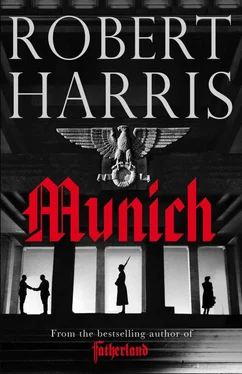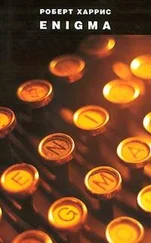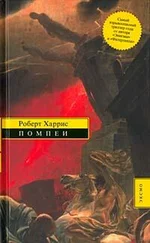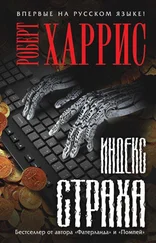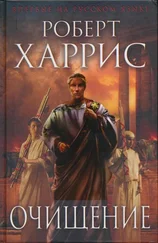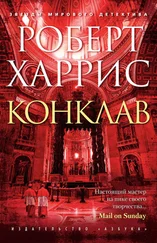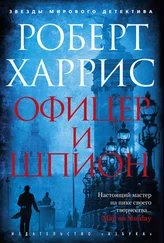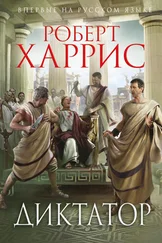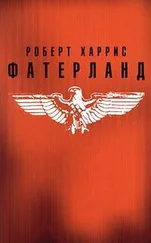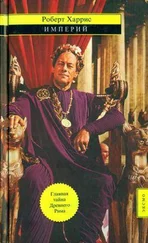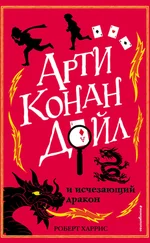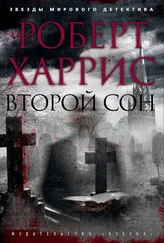Wilson was at a side table, squirting soda from a siphon into two tumblers of what looked like brandy. The Prime Minister was sprawled back in an armchair, legs outstretched, arms dangling over the sides. His eyes were closed. He opened them as Legat approached.
‘I’m afraid I could only find the speech in The Times , Prime Minister.’
‘That’s all right. That’s where I read it. God!’
With a groan of exhaustion, he hauled himself from the depths of the armchair. His legs moved stiffly. He took the newspaper, placed it open at the speech on Wilson’s desk, extracted his spectacles from his breast pocket and began looking up and down the columns of newsprint. His mouth hung open slightly. Wilson came over from the side table and politely showed Legat the tumbler. Legat shook his head. ‘No, thank you, Sir Horace.’ Wilson placed it next to the Prime Minister. He looked at Legat and raised his eyebrows slightly. There was something almost shocking in the complicity of it — the suggestion that they were both having to humour the old man.
The Prime Minister said, ‘This is it: “ We have never found a single Great Power in Europe with a man at its head who has as much understanding for the distress of our people as my great friend Benito Mussolini. We shall never forget what he has done in this time, or the attitude of the Italian people. If similar distress should ever befall Italy, I shall go to the German people and ask them to do for the Italians what the Italians have done for us. ”’ He pushed the paper across the desk for Wilson to look at. He picked up the tumbler and took a sip. ‘Do you see what I mean?’
‘I do.’
‘Hitler plainly isn’t going to listen to me, but he might well listen to Musso.’ He sat at the desk, took a sheet of Number 10 notepaper and dipped a pen in the inkwell. He paused to take another drink, gazed ahead in thought, then started to write. After a while, he said to Legat, without looking up, ‘I want you to take this to the Foreign Office cipher room right away and have them telegraph it immediately to Lord Perth at the embassy in Rome.’
‘Yes, Prime Minister.’
Wilson said, ‘If you’re writing to the Ambassador, don’t you think you ought to tell the Foreign Office?’
‘Damn the Foreign Office.’ The Prime Minister blotted the wet ink. He turned and smiled up at Legat. ‘Please forget you heard that last remark.’ He held out the letter. ‘And when you’ve done that we’ll get to work on my speech to Parliament.’
A minute later, Legat was hurrying back across Downing Street towards the Foreign Office. The road was clear. The crowds had gone. Thick cloud over London obscured the stars and moon. An hour remained until midnight.
The lights were still switched on in Potsdamer Platz, looming war or no. The dome of the Haus Vaterland, with its UFA-cinema and its giant café, was lit by traceries of four thousand electric bulbs. Opposite it, an illuminated billboard showed a movie star with glistening jet-black hair, his face at least ten metres high, smoking a Makedon cigarette — ‘ Perfekt! ’
Hartmann waited for a tram to pass, then strolled across the street to the Bahnhof Wannsee. Five minutes later he was aboard one of the suburban electric trains, rattling south-west into the night. He could not entirely throw off the sensation that he was being followed, even though his carriage — he had chosen to ride in the last one — was empty apart from a pair of drunks and an SA man reading the Völkischer Beobachter . The drunks got off at Schöneberg, bowing to him elaborately as they left, and then it was only him and the Stormtrooper. The city lights dwindled. Great areas of darkness spread around him like mysterious black lakes; he guessed they must be parks. From time to time the train jolted and threw out blue flashes of electric sparks. They stopped at little stations — Friedenau and Feuerbachstrasse — the automatic doors opening on to deserted platforms. Finally, as they came into Steglitz the SA man folded his paper and got to his feet. He brushed past Hartmann on his way to the door. He smelled of sweat and beer and leather. He hooked his thumbs into his belt and turned to address Hartmann. His plump, brown-clad body swayed with the train; he reminded Hartmann of a fat chrysalis about to burst.
‘Those fellows were disgusting.’
‘Oh, I don’t know. They seemed harmless enough.’
‘No, should’ve been locked up.’
The doors opened and he stumbled out on to the platform. As the train pulled away Hartmann looked back and saw him bent over, hands on his knees, vomiting.
Out here, the trees grew close to the track. The trunks of silver birches flashed past, luminous in the dark. One might imagine oneself to be in a forest. He rested his cheek against the cool glass of the window and thought of home and boyhood and camping in the summer, of singing and campfires, of the Wandervogel and the Nibelungenbund, of the noble elite and the salvation of the nation. He felt a sudden sense of exhilaration. A few more passengers got off at Botanischer Garten and at last he felt sure he was alone. At the next stop, Lichterfelde West, he was the only person to alight on to the platform until the very last moment when the doors had already started to close and a man in the carriage in front just managed to squeeze through the gap. He glanced briefly over his shoulder as the train pulled away and Hartmann had an impression of a blunt-jawed, brutal face. The Liebstandarte-SS Adolf Hitler — the Führer’s bodyguard — had their barracks in Lichterfelde: perhaps he was an officer, off duty. The man bent to tie his shoelace and Hartmann walked quickly past him, along the platform, up the flight of steps, through the deserted station with its closed ticket office, and out into the street.
He had memorised the route before he left the office — right, right, fourth left — but instinct warned him to wait. He crossed the cobbled square in front of the station and stood in the doorway of a butcher’s shop opposite. The station was eccentric. It had been built in the last century to resemble an Italianate villa. He felt as if he were a spy in a foreign country. After half a minute his fellow passenger emerged, hesitated and looked around, as if searching for Hartmann, then turned right and disappeared. Hartmann gave it another five minutes before he set off.
It was a pleasant, leafy, bourgeois suburb — hardly a place in which to plot treason. Most of the inhabitants were already asleep, their shutters closed. A couple of dogs barked as he passed. He wondered why Oster wanted them to meet out here. He walked down Königsberger Strasse and into Goethe Strasse. Number 9 was a plain, double-fronted house — the sort of villa a bank manager might choose to live in, or a headmaster. The lights in the front windows were off and suddenly it occurred to him that he might be walking into a trap. Kordt was a Nazi, after all. He had worked with Ribbentrop for years. But then Hartmann was a Party member himself: if one wanted to rise to a position of any influence, one had to be. He banished his suspicion, opened the little wooden gate, marched up the path to the front door and rang the bell.
A well-educated voice said, ‘Identify yourself.’
‘Hartmann. Foreign Ministry.’
The door was unlocked. An elderly, bald-headed man of about sixty stood on the threshold. Large round melancholy blue eyes were set deep into his skull. A small duelling scar ran horizontally just below the left corner of his mouth. It was a fine, intelligent face. In his grey suit and blue tie, he might have been a professor. ‘Beck,’ he said, and stuck out his hand. He pulled Hartmann into the house with a firm grip, then shut the door and locked it.
Читать дальше
